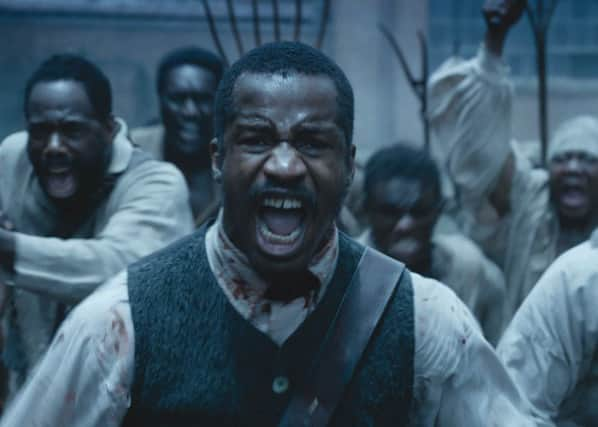Film reviews: The Birth of a Nation | Snowden | Life, Animated | Office Christmas Party


The Birth of a Nation (15) ***
Snowden (15) ***
Life, Animated (PG) ***
Office Christmas Party (15) **
Nate Parker’s slave drama The Birth of a Nation generated a slew of headlines at this year’s Sundance Film Festival when Fox Searchlight paid a record-breaking $17.5m for the distribution rights. By the time it was released in the US in September it was generating headlines of a different sort after Parker’s involvement in a rape case during college resurfaced (he was subsequently cleared of all charges), leading to calls for a boycott. In the process, the gun-jumping Oscar buzz – a lot of it speculatively based on the film’s status as a potential corrective to the Academy Awards’ ongoing diversity problems (it debuted in the midst of this year’s #OscarSoWhite outcry) – started to dissipate and the film tanked at the American box-office.
How much one has to do with the other is, of course, debatable and ultimately impossible to quantify; but watched purely as a film, what is clear is that The Birth of a Nation is not some singular artistic masterpiece. Prone to mythologising history with big hero moments, it’s reminiscent of dozens of other Oscar-baiting historical epics, from Braveheart (especially Braveheart) to this year’s Matthew McConaughey-starring Free State of Jones. In a way that’s also what’s subversive about it. In dramatising the life of Nat Turner, a Southern slave who led a violent and bloody rebellion against his white masters in 1831, Parker’s decision to use the tropes of the Hollywood historical epic is a political statement in itself, one made more pointed by the title’s bold repudiation of DW Griffith’s cinematically ground-breaking, horrifyingly racist 1915 epic of the same name.
Advertisement
Hide AdPlayed as an adult by Parker, Turner’s rise to prominence is thus presented very much in terms of manifest destiny and the hero myth, yet the film is at its most powerful when Parker’s revisionist approach highlights the perversities of a system that normalises a violently racist institution with a kindly smile and a few concessions to decency. Time and again we see the effect of that crushing, encoded prejudice etched on Parker’s face, particularly in his interactions with Turner’s superficially kindly master (played by Armie Hammer). When the violence that Nat witnesses become intolerable, however, his radicalisation – bolstered by his religious convictions – is presented in more simplistic revenge terms. That’s another trope of this type of filmmaking, but it’s problematic in this context because rape is used as the motivating factor and, rather than creating fully rounded female characters, the film presents the women as mere victims, their suffering designed to justify Turner’s transformation from helpless witness to avenging angel. Such clichéd filmmaking ends up robbing the finalé of much of its intended power. For all his good intentions, Parker’s revisionism has exposed the limits of the genre rather than his ability to subvert them.